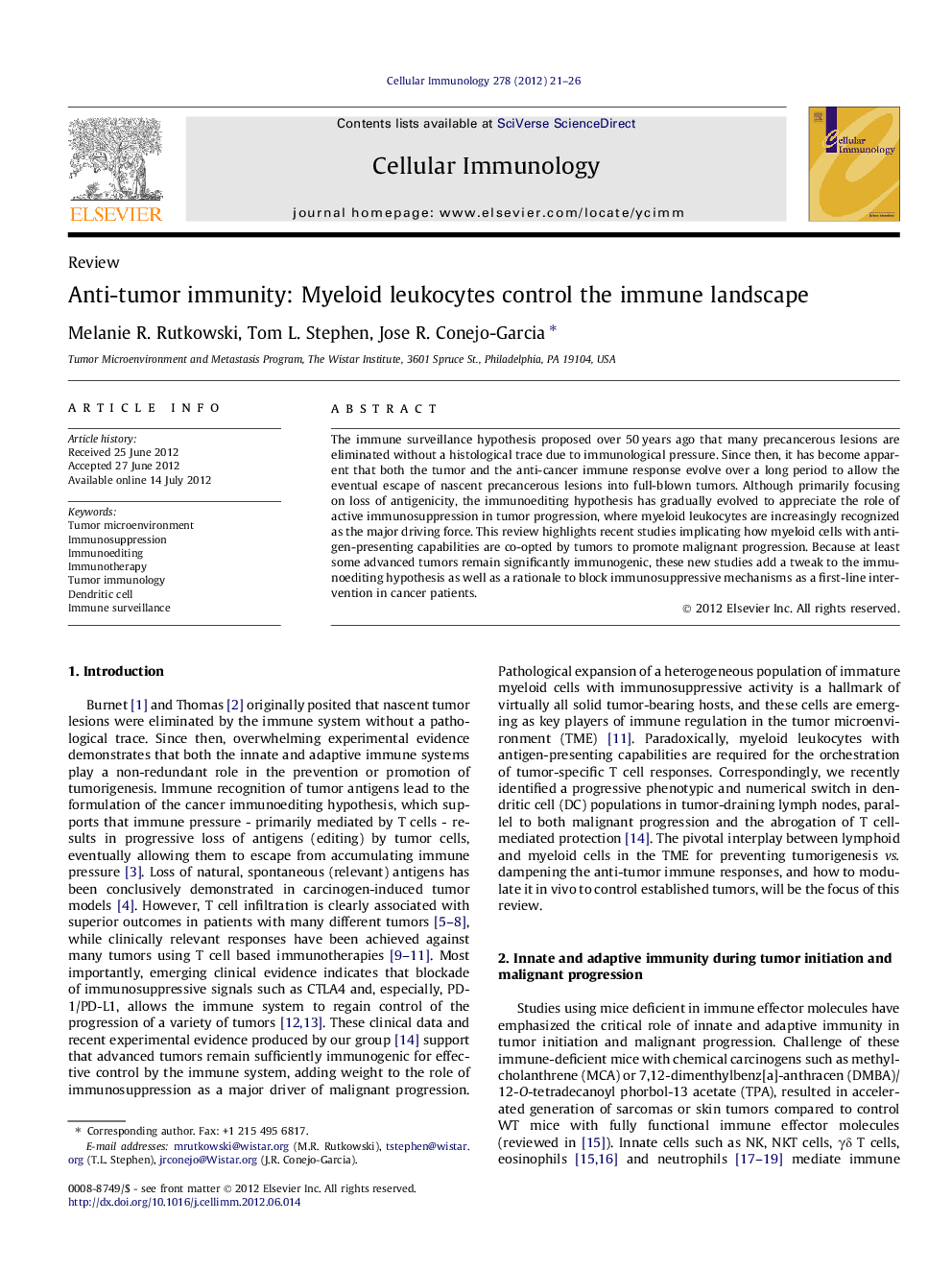| Article ID | Journal | Published Year | Pages | File Type |
|---|---|---|---|---|
| 2167191 | Cellular Immunology | 2012 | 6 Pages |
The immune surveillance hypothesis proposed over 50 years ago that many precancerous lesions are eliminated without a histological trace due to immunological pressure. Since then, it has become apparent that both the tumor and the anti-cancer immune response evolve over a long period to allow the eventual escape of nascent precancerous lesions into full-blown tumors. Although primarily focusing on loss of antigenicity, the immunoediting hypothesis has gradually evolved to appreciate the role of active immunosuppression in tumor progression, where myeloid leukocytes are increasingly recognized as the major driving force. This review highlights recent studies implicating how myeloid cells with antigen-presenting capabilities are co-opted by tumors to promote malignant progression. Because at least some advanced tumors remain significantly immunogenic, these new studies add a tweak to the immunoediting hypothesis as well as a rationale to block immunosuppressive mechanisms as a first-line intervention in cancer patients.
► Measurable T cell responses control tumor progression from very early stages. ► Accelerated malignant expansion is driven by immunosuppressive myeloid leukocytes. ► Tumor cells remain immunogenic during the escape phase of tumor progression. ► Neutralizing inhibitory checkpoints in T cells restores immune control of tumors. ► Immunosuppressive leukocytes can be re-programmed in vivo and in situ.
